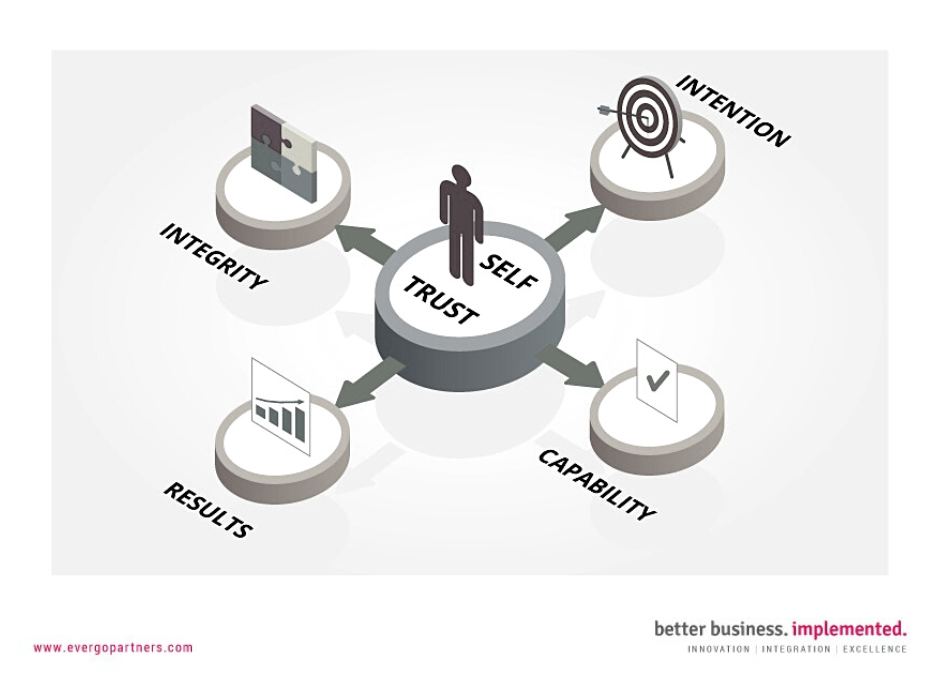Introduction
Stephen M.R. Covey in his book “Speed of Trust” mentions the lowest societal trust in different countries: ” …only 34% of Americans believe that other people can be trusted. In Latin America, the number is only 23%, and in Africa, the figure is 18%. In Poland, only 10% people trust each other. The point is: without trust there’s no collaboration and without collaboration there’s no development. To gain long-term success trust is absolutely necessary.
Stephen M.R. Covey proposes 5 waves of trust model:
1.Self- Trust. 2. Relationship Trust. 3. Organizational Trust. 4. Market Trust. 5. Societal Trust.
Most important, as we think, are self-trust and relationship trust.
Self – Trust
This kind of trust is fundamental to establish trust at all levels. Ask yourself: “Am I believable”, “Am I person that other people can trust” ,“Do I trust myself?”
We would like to show you just 4 cores of credibility to make this case more understanding and then – show you the way you can increase your credibility in practice.
Core 1: Integrity (about character)
To increase your integrity you have to know answers for a few important questions:
Do I try to be honest with all my interactions with others? What about my values? Do I feel comfortable with them? What about possibilities of learning new trust that may push me to rethink or even redefine my values?
Core 2: Intention (about character)
Intent is your plan or purpose. Intent consists of 3 things: motive, agenda and behavior. Motive is the reason for doing something. Agenda grows out of motive – what you intend to do. Behavior is the manifestation of motive and agenda. To improve intent you should: examine and refine your motives and declare your intent.
Core 3 – Capabilities (about competence)
Talents, skills, knowledge, capacities, and abilities should match to tasks.
You should increase your capabilities by: follow your strengths, keep ongoing learning.
If you recognize and respect the need of trust and you have skills which build that trust – you have knowledge about establishing, growing and restoring that trust.
Core 4 – Results (about competence)
Everyone knows: only results matters!
Relationship Trust – The Principle of Behavior
It’s all about behavior… You can say many things, but unless you do all of them, your words will not build trust. Stephen M.R. Covey in his book “Speed of Trust” has defined 13 behaviors supporting trust building:
- Talk straight – means: be honest, tell the truth, don’t try to manipulate people or distort facts;
- Demonstrate respect means: care for others, show you care;
- Create transparency means: tell the truth in a way people can verify, don’t hide information;
- Apologize when they are wrong by do not covering things up;
- Show loyalty: give credit to others where credit should be due. Speak about others as they were present;
- Deliver results;
- Get better, means you should seek feedback and learn from mistakes;
- Confront reality, means all difficult cases should be done by you, you have to face them personally;
- Clarify expectations, means: disclose and reveal expectation, discuss them, validate them;
- Practice accountability;
- Listen first;
- Keep commitments;
- Extend trust It’s different to previous behaviors. It’s about moving from “trust” as a noun to “trust” as a verb. Extending trust is the best way to create trust when it’s not there.

We, at EvergoPartners, believe that trust makes cooperation more effective and helps save time, disappointments and ultimately money.




